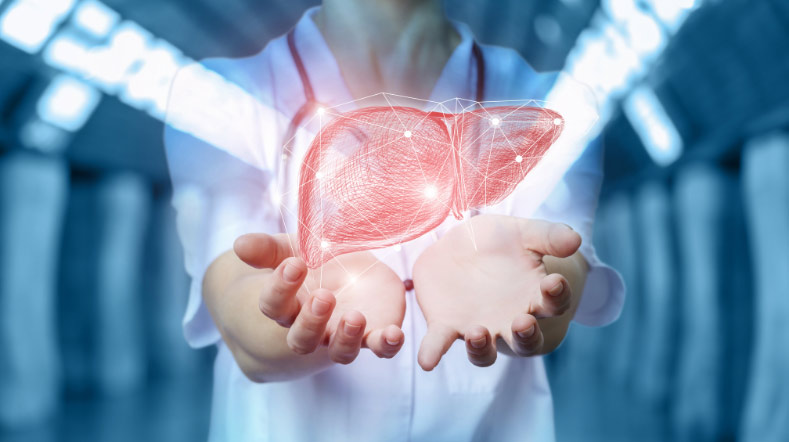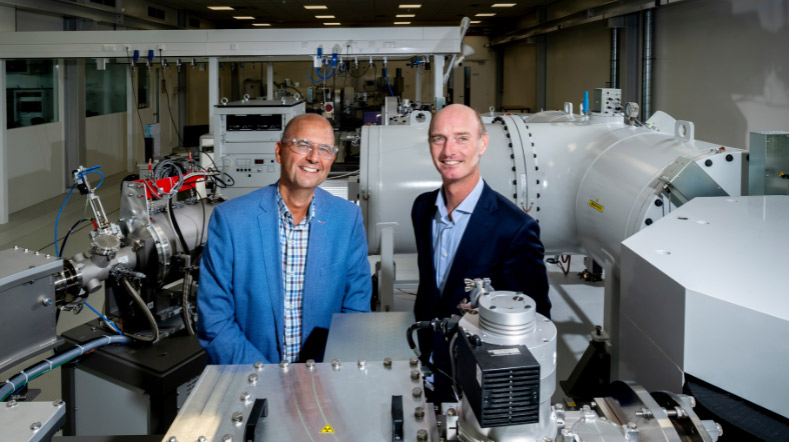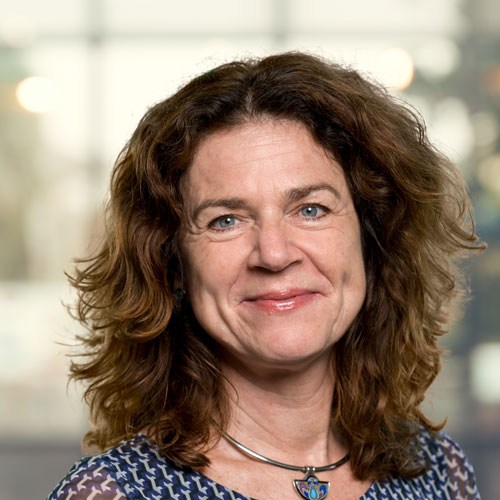
Biomarkers personalise medical treatment
Until the start of the millennium, every metastatic lung cancer patient received more or less the same treatment. We now know that there are different types of lung cancer, each with their own specific features, and which therefore require their own specific treatment. The same is true of an increasing number of conditions. In other words, prevention and treatment are being targeted more accurately at the needs of the individual and their disease. To make this type of personalised care possible, TNO and Roche are working on the development and implementation of biomarkers.
The coronavirus makes some people much more ill than others. We now know that the vast majority of patients who end up in hospital are in their seventies or older and often have underlying health conditions. These include obesity, cardiovascular disease, or lung infections.
‘Suppose a vaccine for coronavirus is introduced soon – would everyone in the Netherlands be vaccinated, or would it better to use biomarkers to predict who is at risk of becoming seriously ill and only vaccinate the people in that category? In an ideal world, that is the type of personalised healthcare that we would like to achieve’, says Jeske Timmermans of Roche Nederland.
When a vaccine for coronavirus is introduced, you want to be able to predict who is at risk of becoming seriously ill and to vaccinate only the people in that category’
Personalised healthcare
That kind of personalised healthcare could mean considerable savings for the healthcare sector. ‘Demand for healthcare is increasing, new medications are often very costly, and there is also the question of overtreatment. We are not always aware of the latter, but many patients are given medication that does not work, or does not work effectively, or that they don’t need.’
‘There is also the phenomenon of undertreatment. In oncology, for example, patients are not always able to access certain types of medication because the medication is not officially registered for the condition in question, but which, given the biology of the tumour, could be effective. If we are better able to predict the right treatment for the right people at the right time, that could save the healthcare sector a great deal of money. That money could then be used to improve healthcare, for example by putting innovations into practice for which there are currently too few resources available’, says Timmermans.
‘Being able to continue meeting the rising demand for healthcare with the current level of available financial resources, using technological developments for improving care and making it more efficient – that’s a powerful motive for the pharmaceutical industry to focus on personalised healthcare.’
Biomarkers
Ivana Bobeldijk, Biomedical Health programme manager at TNO, is conducting research into biomarkers. ‘A biomarker is something you can measure to help identify an illness, to select treatment that is suitable for a particular patient, and to predict how the illness will develop. Biomarkers can vary from a certain gene in a person’s DNA to parameters in the blood, and from someone’s heartbeat to their weight. Thanks to technological developments we can now detect and measure many more biomarkers – and much less expensively and much more easily, too.’
For example, among the new biomarkers TNO is seeking to identify are those for non-alcoholic steatohepatitis (NASH). This illness is occurring with increasing frequency, but no medication is yet available for it. ‘NASH progresses differently from one patient to the next, so it is only identified at a late stage. We are looking for biomarkers that tell us something about how the condition starts so that we can detect it earlier and identify different groups of patients’, says Bobeldijk.
‘Being able to predict the right treatment for the right people at the right time could save the healthcare sector a great deal of money’
She believes that more and better biomarkers could help to get new medications to the market more quickly. Jeske Timmermans is convinced of this too: ‘We recently introduced a medication to the market for a cancer mutation that occurs in only 0.2 to 0.4 percent of patients. If we had investigated this using a traditional randomised phase III study, it would have taken us 17 years longer.’
In phase III studies, the new treatment is being compared with the existing treatment to establish which is better. ‘For rare conditions or mutations, this is not always a feasible option. By collecting data from standard treatments and knowledge of biomarkers and using it smartly, we can, with the help of artificial intelligence and algorithms, hugely accelerate the pace at which new medications are developed.’ The Roche Group is working on this in partnership with Flatiron Health and others.
Putting innovation into practice
The challenge Roche and TNO are now facing is implementation. ‘It has been shown in smaller research groups that certain biomarkers are able to predict whether a type of treatment will be effective. However, this knowledge is not always applied in the care given to patients. For example, determining a person’s DNA (whole genome sequencing or panel testing) can help predict or explain the effect of therapy, but this occurs only to a very limited degree. This is because it is often impossible to demonstrate that using such biomarkers is also cost-effective’, says Bobeldijk.
Timmermans adds: ‘We are trying to help accelerate putting innovation into practice. This is what TNO, Roche, and many other parties, including insurance companies, doctors, and government, are doing. A number of these parties have joined forces in the PHC Catalyst Alliance. Together, we can speed up the transition towards personalised healthcare.’
Get inspired
TNO discovers new method to diagnose liver disease


TNO launches Peregrion to boost market impact of its technology that accelerates medicine development


TNO and Janssen sign intention to develop new collaborations

